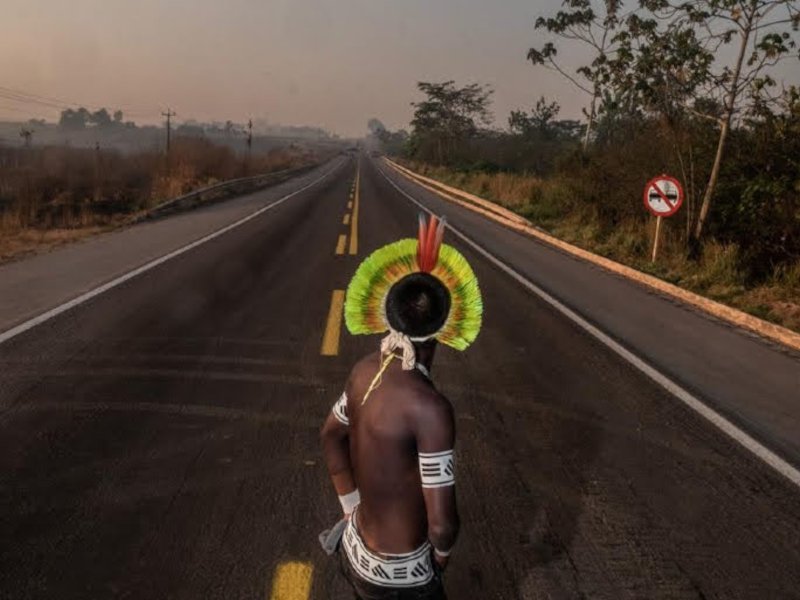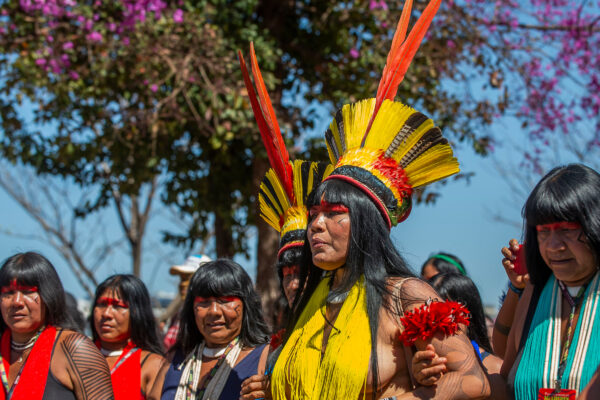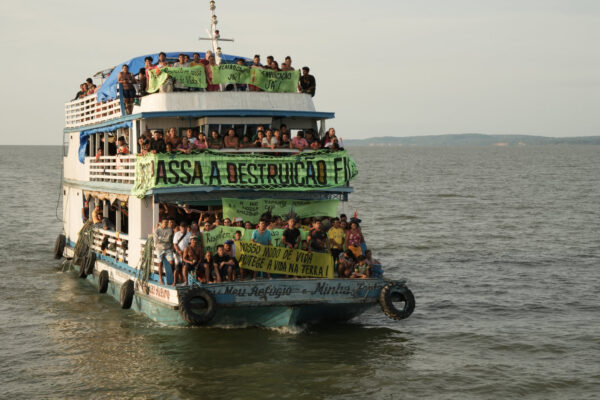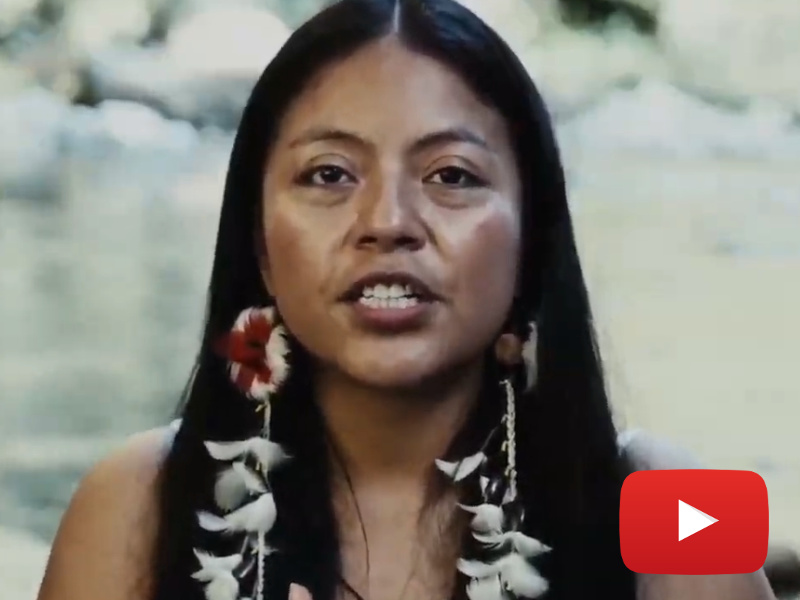Halted for two years by an injunction from Minister Alexandre de Moraes of Brazil’s Supreme Court (STF), the controversial Ferrogrão mega-railway, a disastrous infrastructure project proposed for the Amazon, is now a renewed threat.
On May 31, 2023, de Moraes authorized an analysis of studies and administrative processes related to the implementation of the railway to resume. The railway is regarded as one of the most anti-environmental projects being considered by Lula de Silva’s government and has even been dubbed the “new Belo Monte.” With support from Amazon Watch, a delegation of Munduruku leaders and representatives traveled to Brasília to attend the Supreme Court ruling to voice their opposition, protest against the Ferrogrão, and defend their constitutional rights.
Despite reopening studies of the project, the STF minister maintained the suspension of an alarming law that would reduce the area of Jamanxim National Park to allow for railroad construction. This decision was announced amid a series of attacks on Indigenous rights in Brazil, by the Chamber of Deputies as they advanced Bill 490 which would legalize land theft.
“The railroad could be the end of the line for the Amazon,” stated Alessandra Munduruku and Chief Juarez Saw in a recent article for Uma Gota No Oceano. “Its 993 km of track would open the way for all sorts of invaders, such as land grabbers, drug dealers, gold miners, and loggers, who would bring more insecurity and violence to those who live in the forest. If built, Ferrogrão will bring the need for new ports, waterways, and highways, an infrastructure requiring more energy. [It would be] the perfect excuse to push through the São Luiz hydroelectric plant on the Tapajós, the last tributary of the right bank of the Amazon without dams.”
Slated to cost an estimated US$3.7 billion (BR$ 20 billion) and stretch 933 km, the project would transport soy and corn primarily from Mato Grosso state, one of the country’s most productive agricultural regions, through the Amazon’s so-called Northern Arc – an area already suffering severe pressure from deforestation – to the port of Miritituba, on the Tapajós River in Pará state. The construction of the railway also entails slashing the size of Jamanxim National Park by 464 hectares and could lead to the destruction of more than 200,000 hectares of primary rainforest.
A top priority in Lula da Silva’s Ministry of Transportation’s infrastructure portfolio, the project would also affect Indigenous lands, threatening socio-environmental upheaval in an already delicate region. Indigenous leaders from territories threatened by the mega-project are demanding their right to be consulted and have vowed to fight for compensation for the impacts already felt in their territories long before the project left the drawing board.
Dotô Takak-Ire, a Kayapó Mekrãgnoti Indigenous leader and coordinator of the Kabu Institute, emphasized that one of the hallmarks of the Ferrogrão process has been the public administration’s lack of dialogue with Indigenous peoples.“We are not against development. But the government must follow the law,” he shared in an interview with Mongabay. “As I mentioned during the hearing [held in December in the Chamber of Deputies], if the Supreme Court justices decide to advance the Ferrogrão process, we will fight. We may have to establish a village on the train’s path. Then I would like to see if they will trample over us,” he warned.
Dotô Takak-Ire added that Indigenous demands have focused on the right to consultation, which is guaranteed by Convention 169 of the International Labour Organization (ILO), to which Brazil is a signatory, in cases where projects like the Ferrogrão would impact traditional territories.
According to a study by the Federal University of Minas Gerais (UFMG), the repercussions of construction on Capoto-Jarina Indigenous Land and the Xingu Indigenous Territory could be disastrous. The railway will bisect various Indigenous lands in the Xingu River basin, causing severe socio-environmental damage.
This study emphasizes that the impacts generated by the project – including an increase in agrochemical contamination and deforestation – extend far beyond the government’s predicted zone of 10 km along both sides of the route. The construction could even propel a disruption of the Xingu ecological corridor, 26 million hectares of protected rainforest whose division could cause irreparable losses to global climate stability. Meanwhile, the economic, technical, and environmental feasibility studies identified potential impacts on 16 indigenous lands, including those of the Munduruku, Panará, and Kayapó peoples.
“The railroad is an open door for agribusiness. And it isn’t just soy plantations, but all of the associated infrastructure which, being in the Amazon, will affect all Indigenous territories, our river, our forest,” said Alessandra Korap Munduruku in a recent interview with Sumaúma.
The planned Ferrogrão mega-project runs counter to the Lula administration’s commitment to protect Amazonian rainforests and uphold Indigenous rights as critical contributions in the struggle to contain runaway climate change. The rainforest and our collective future cannot withstand the greenlighting of yet another Amazonian infrastructure disaster.














